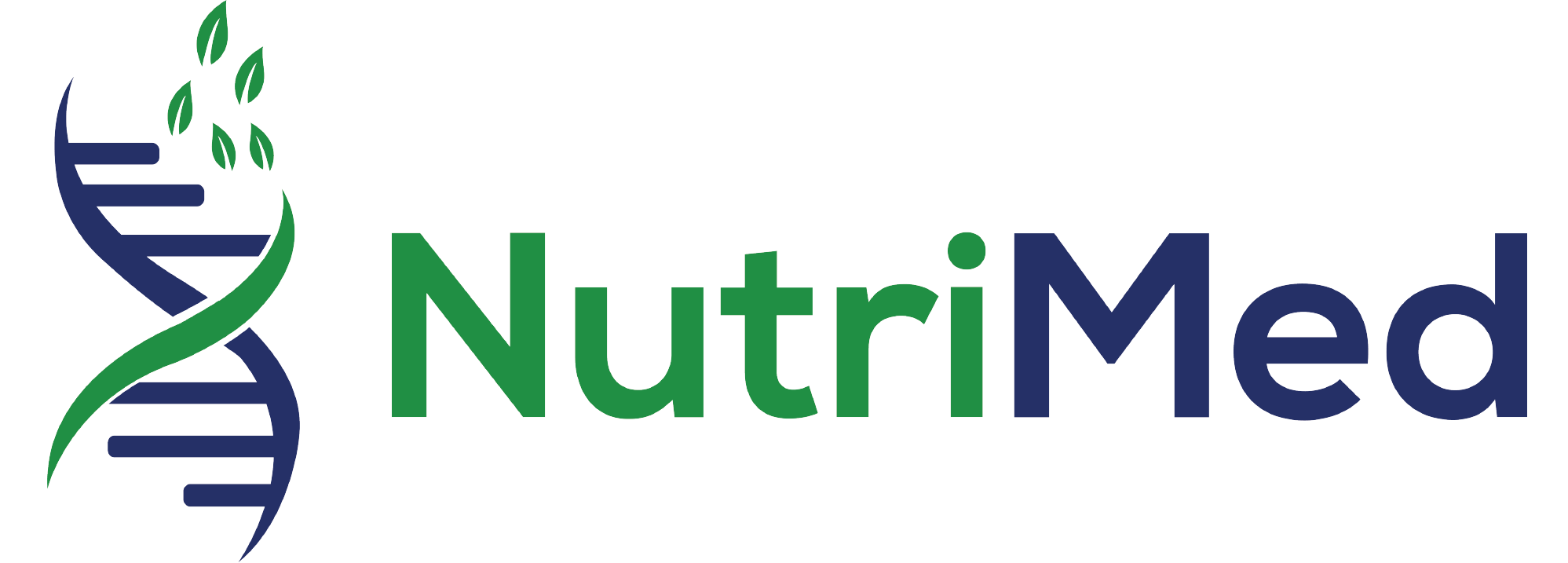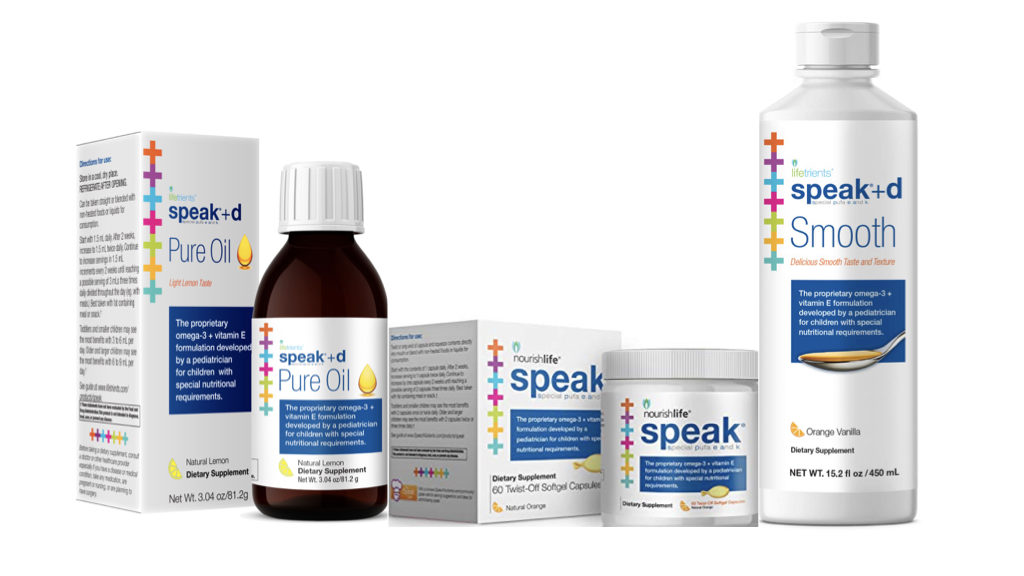Speak®+d
Proprietary formulation developed by a pediatrician for children with special nutritional requirements.
Speak®+d
Developed by leading pediatric researchers and clinicians, the speak® formulation contains 7 nutrients in precise doses and ratios for children with special nutritional requirements. Speak is available in four different forms: capsule, twist-off capsules, Speak Smooth, and Pure Oil.
- May improve speech ability
- Supports cognitive function
- Provides antioxidant support
- Could lead to behavioral improvement
Speak®+d Contents
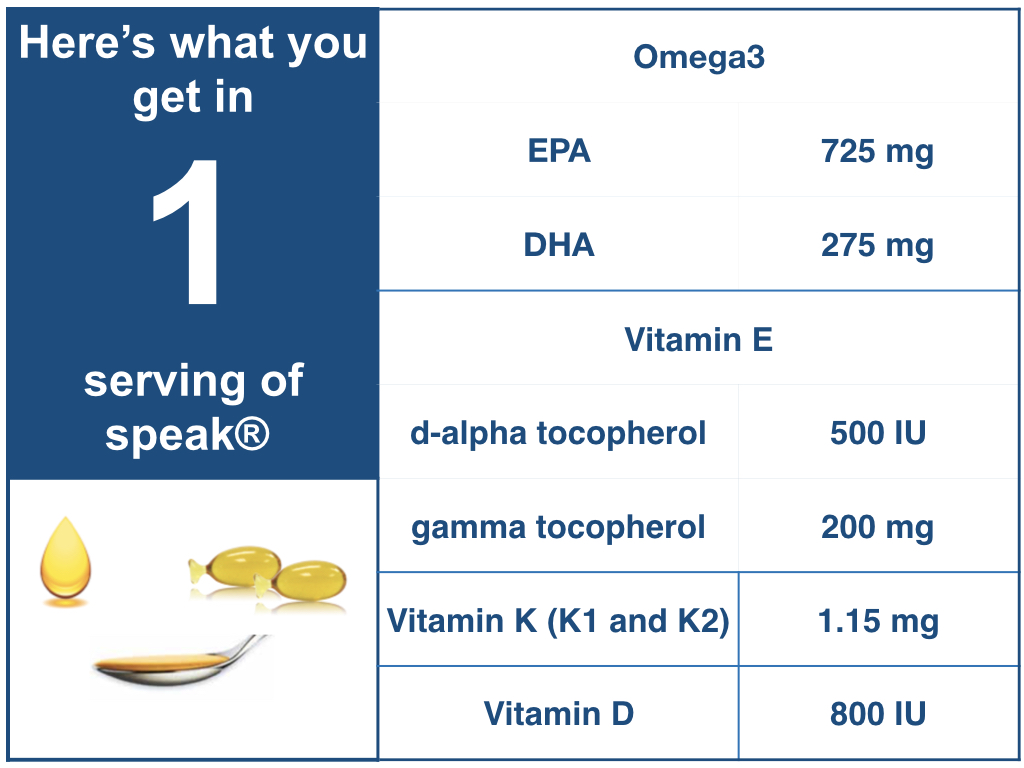
Pediatrician Formulated
Speak® formulation includes seven nutrients in precise servings and ratios for children with special nutritional needs. Each serving of Speak® contains concentrated, ultra-purified omega-3 (725 mg EPA, 275 mg DHA) in addition to rich amounts of two forms of vitamin E. Omega-3 supports cognitive function and is paired with the antioxidant vitamin E. Optimal amounts of both d-alpha and gamma tocopherols function as key antioxidants and operate along omega-3 fats to support neurological health and provide essential nutrition. Due to the theoretical blood thinning effects of omega-3 and vitamin E, vitamin K (a normal and healthy blood clotting nutrient) is also included. This precise combination of purified ingredients is delivered in a convenient creamy liquid which can be poured directly from the bottle in a 1 tablespoon serving size resulting in greater ease of use for parents and children.
How it works ?
Omega-3
The central nervous system is rich in highly unsaturated fatty acids, which cannot be synthesized by the human body but must be supplied through nutrition.
Vitamin D
The vitamin D system is best known for its impact on bone mineral density, however optimal concentrations of vitamin D are also required for brain function and development.
Vitamin E
Available naturally in nuts, recent developments confirmed that vitamin E plays an essential role in the human nervous system and is a potent antioxidant.
Vitamin K
Vitamin K found naturally in green vegetables, plays an important role in the integrity of the nervous system, in addition to its role as a natural clotting nutrient.
omega-3
- Omega-3 and brain development
- Role in neurodevelopment condition
- How omega-3 works
- Benefits of omega-3
Highly unsaturated fatty acids are essential for normal brain development and function. Dietary consumption of omega-3 fatty acids EPA (eicosapentaenoic) acid and DHA (docosahexaenoic acid) , commonly found in fish and fish oil, may decrease the risk for certain neuropsychiatric disorders. There is increasing evidence that fatty acid deficiencies or imbalances may contribute to childhood neurodevelopmental disorders, including Autism spectrum disorder, attention-deficit/hyperactivity disorder, dyslexia and dyspraxia.
Blood biochemical and other studies has been accumulating supporting evidences that children with neurodevelopment disorders like Autism Spectrum disorder share common deficiency in essential fatty acids. Essential Fatty Acids deficiency might be due to different reasons including lesser intake of highly unsaturated fatty acids metabolic disorder and to oxidative stress in Autism and other conditions that cause lipid perodixation, that’s why it’s important to augment omega-3 supplementation with antioxidants like vitamin E.
Recent research improved the understanding of the different roles of Omega -3 ingredients. Where DHA is the more famous ingredient that plays a role in brain development and most marketed Omega -3 supplements contain a high percentage of DHA, it’s recently been found the EPA play an important role in neurodevelopment conditions like in Autism, where EPA plays an important role in neurotransmission in these conditions, accordingly ratio of EPA to DHA in Speak ®+d made specifically to meet nutritional requirements of these conditions.
Omega-3 deficiency is associated with behavioral, social and learning problems as well as with some aspects of general health. Multiple researches proved the positive impact of Omega-3 supplementation in Autism with significant improvement in hyperactivity, inappropriate speech, irritability and social skills. Accordingly, Omega-3 can be considered a safe and tolerable intervention in autism spectrum disorder, attention-deficit/hyperactivity disorder, dyslexia, and dyspraxia.
Vitamin D
- Vitamin D and brain development
- Role in neurodevelopment condition
- Vitamin D and Autism
- Benefits of Vitamin D
Vitamin D is a gene activator that creates the enzyme converting tryptophan into serotonin in the brain that functions as a neurotransmitter. It plays an essential role in myelination, which is important for connectivity in the brain. Also, vitamin D acts as calcium signaling, neurotrophic, and neuroprotective.
Because of Vitamin D’s role in affecting brain development and function, It may play an important role in etiology of Autism Spectrum Disorders. That was studied by measuring Vitamin D level in patients with ASD in different ages compared with the control group. The finding of 5 studies in different parts of the world indicate lower Vitamin D level in patients with ASD compared with the control group.
Studies have shown that decreased maternal Vitamin D levels during pregnancy, and decreased exposure to solar UVB might increase the risk of ASD. A large population-based sample concluded that gestational Vitamin D deficiency was associated with autism-related traits. Another study also concluded gestational Vitamin D deficiency is associated with impairment on a range of cognitive outcomes related to language, motor development, and general intelligence.
In a clinical study with autism, receiving vitamin D supplement for three months. The parents of the children in the group receiving vitamin D rated significant improvement in irritability, hyperactivity, social withdrawal, stereotypic behavior, and inappropriate speech. These researchers, using multiple behavioral checklists, reported significant improvements in social cognition and social awareness and significant decrease in repetitive hand movements, creation of noises, jumping, and restricted interests.
Vitamin E
- Role in neurodevelopment condition
- Vitamin E and Autism
- Benefits of Vitamin E
The field of clinical nutrition has confirmed that Vitamin E plays an essential role in maintaining the structure and function of the human nervous system. The most widely accepted physiological function of Vitamin E is its role as a scavenger of free radicals, preventing oxidant injury to cell membrane polyunsaturated fatty acids.
Recently, it has been proposed that Vitamin E deficiency resulted independently or secondary to malabsorption diseases maybe responsible for the varied psychomotor abnormalities and may contribute to the high incidence of behavioral and personality disorders.
Autistic children are more vulnerable to oxidative stress compared to their developmentally normal non-autistic siblings. A comparison between autistic children and their normal siblings concluded that Autistic children have significantly higher lipid peroxidation and decreased level of body antioxidants like glutathione, transferrin and ceruloplasmin compared to their normal siblings. A striking correlation was observed between reduced levels of these proteins and loss of previously acquired language skills in children with autism.
Vitamin E, at high dosage, showed significant in the reduction of oxidative stress through its protective role in the nervous system by fighting against lipid per-oxidation. Accordingly, it is believed that Vitamin E supplementation improves effectiveness of supplemented Omega-3
Vitamin K
- Vitamin K and nervous system
- Role in neurodevelopment condition
- Benefits of Vitamin K
Vitamin K is essential for the synthesis of sphingolipids. Sphingolipids are present in high concentrations in brain cell membranes, known to possess important cell signaling functions in addition to their structural role.
Vitamin K–dependent proteins that are now known to play key roles in the central and peripheral nervous systems actively involved in cell survival, and cell growth of neurons. This data confirm s the relevance of Vitamin K in the nervous system and cognition, however limited number of studies have provided evidence of a relationship between Vitamin K status and behavior.
Oxidative mechanisms of injury are important in many neurological disorders, children with autism and other neurological condition s are found to have high oxidative stress and reduced level s of natural body antioxidants like Glutathione. Although vitamin K is not a classical antioxidant, it is reported that Vitamin K1 and K2 potently inhibit glutathione depletion-mediated oxidative cell death.
The protective and potent efficacy of this naturally occurring vitamin, with no established clinical side effects, suggests a potential therapeutic application in preventing oxidative damage.
Formats
Speak®+d same unique formula comes with variety of formats that you can choose from the best for your child
Speak®+d Smooth
For those who prefer an orange-vanilla liquid emulsion with a delicious taste and consistency.
Speak®+d Pure oil
For those who prefer a light tasting, odorless oil that can be administered on a spoon.
Speak®+d twist-off capsule
For those who prefer an oil that can be squeezed out on a spoon or mixed into foods or beverages.
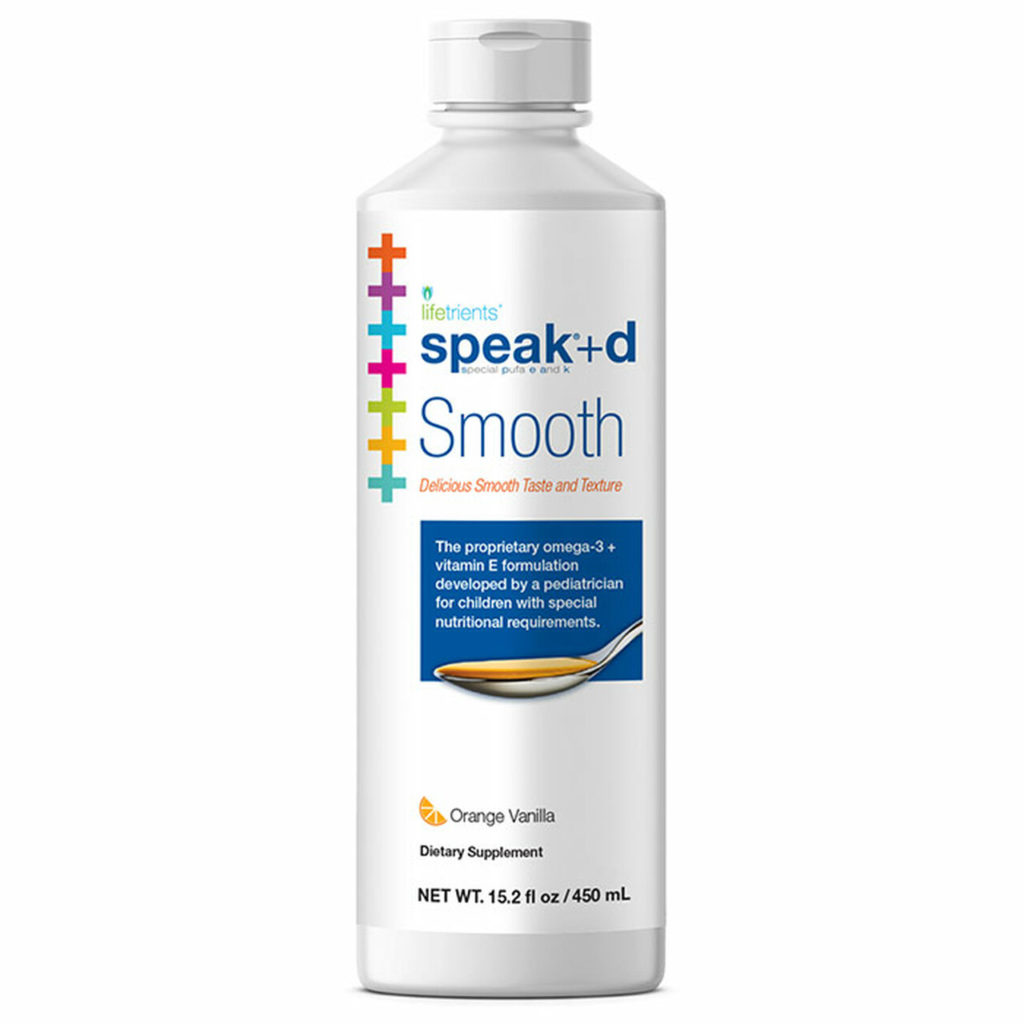
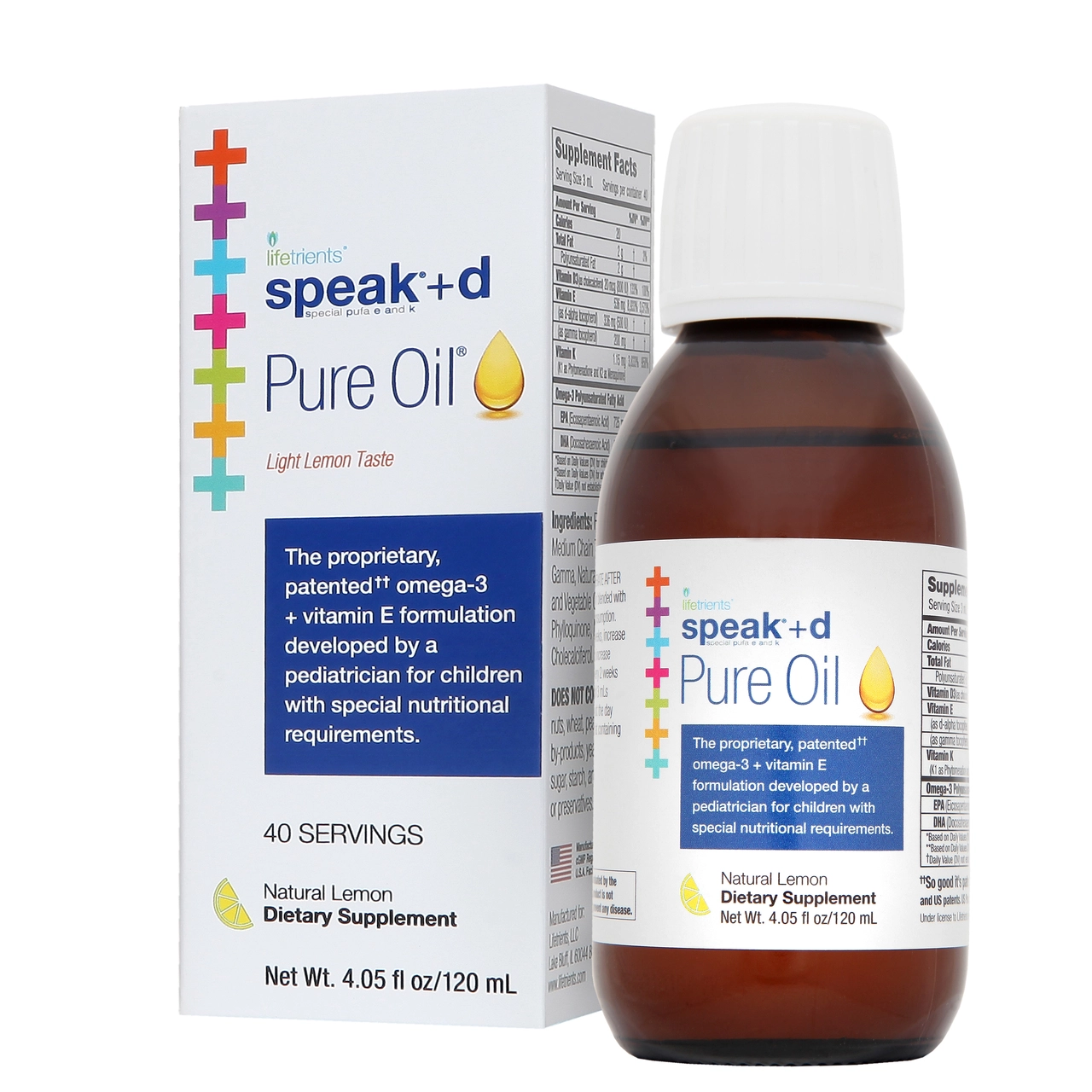
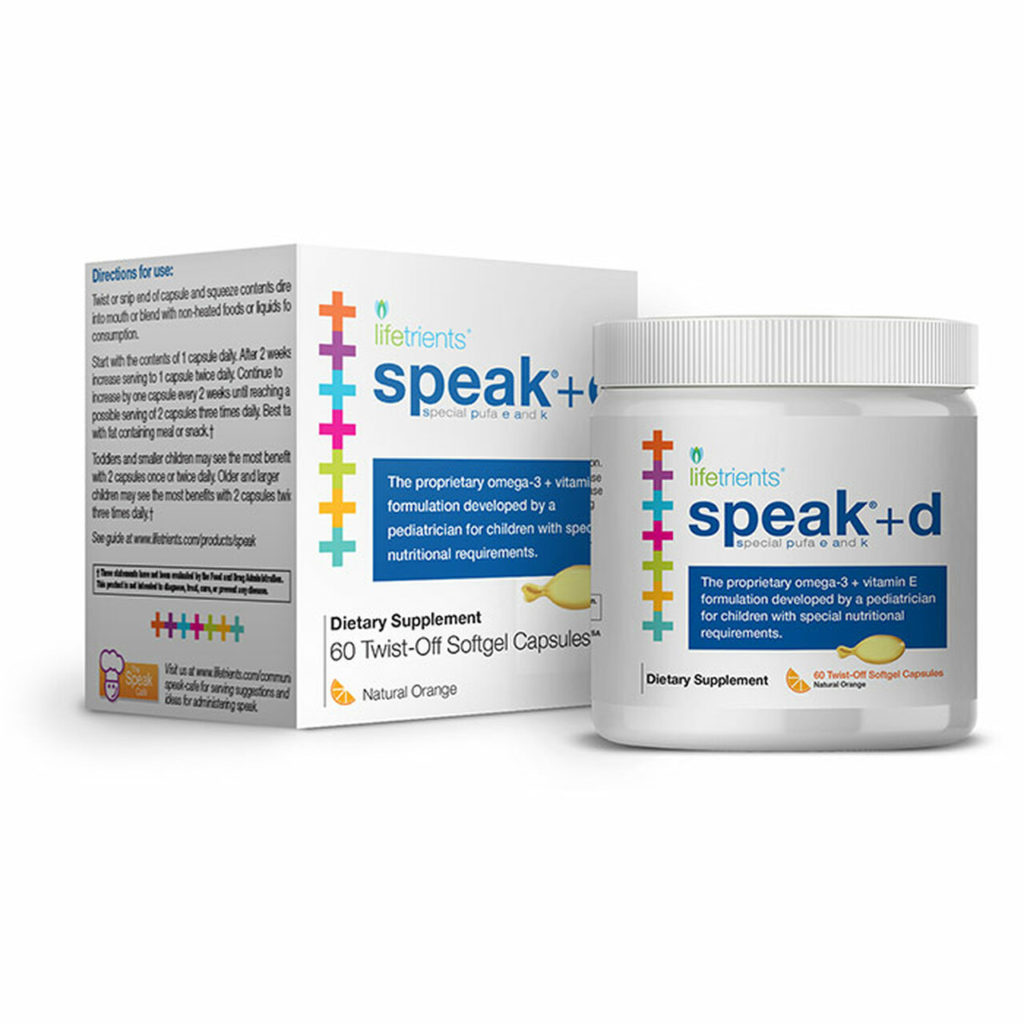
Dosage Instruction
Start with 7.5 ml daily. After 2 weeks increase serving to 15 ml daily continuing to increase by 7.5 ml increments every two weeks until reaching a possible serving of 45 ml daily, divided throughout the day
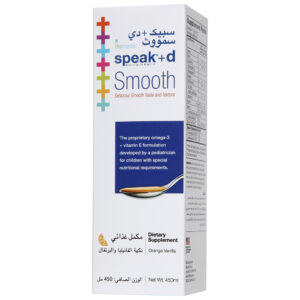
Start with 1.5 ml daily. After 2 weeks increase serving to 3 ml daily continuing to increase by 1.5 ml increments every two weeks until reaching a possible serving of 9 ml daily, divided throughout the day
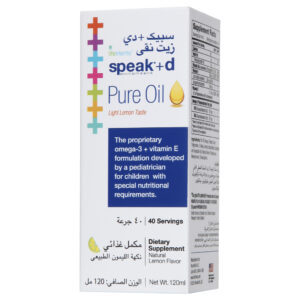
Start with 1 capsule daily. After 2 weeks increase serving to 2 capsules daily continuing to increase by 1 capsule increments every two weeks until reaching a possible serving of 6 capsules daily, divided throughout the day
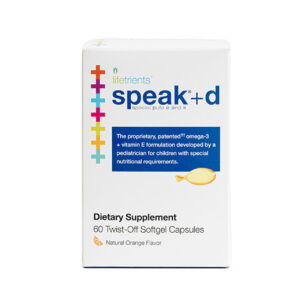
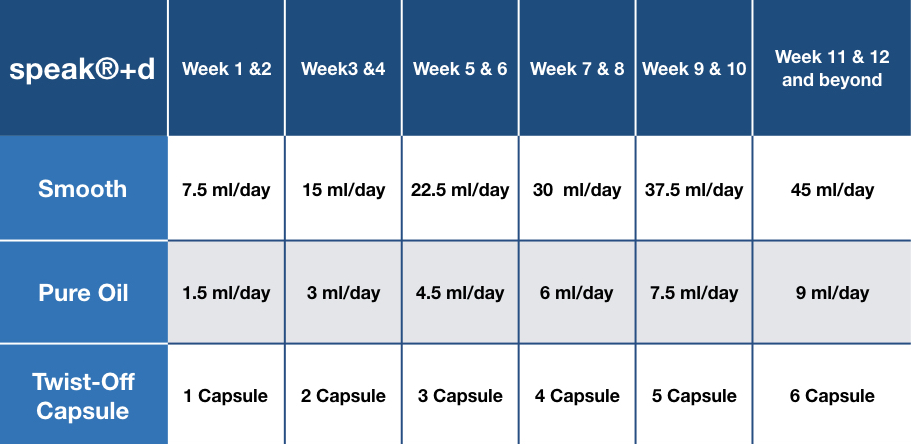
For better results
- Splitting the dose to 2-3 times a day is suggested for maximum effectiveness; supplementation throughout the day is optimal.
- Toddler and younger children may see the best benefits with doses: 15-30 ml/day smooth, or 3-6 ml/day pure oil, or 2-4 capsules from twist capsule.
- Older and larger children may see the most benefits with doses: 30-45 ml/day smooth, or 6-9 ml/day pure oil, or 4-6 capsules from twist.
- Speak can be taken of its own or it can be blended with non-heated food like pudding or liquids.
- Store in cool dry place away from sunlight. refrigerate after opening.
ULTRA-PURIFIED AND CONCENTRATED
WE KNOW THE SOURCE
Our principal supplier can certify when and where the fish is caught. The approved fishery has been certified sustainable by the Marine Stewardship Council since 2005 (and recertified in 2010). The processing plant is built specifically for fish oil production, and it is thoroughly sanitized and fully automated with a computerized control center.
TIME AND TEMPERATURE MATTER
High-grade fish oil cannot be heated above 180 degrees C because trans fats and impurities begin to form and the Omega-3 fats can be altered. High-grade fish oil should not be exposed to heat for more than a few seconds. To maintain exceptional product integrity, we use a very low pressure vacuum and temperatures below 100 degrees for less than one second.
Our product is highly concentrated
Our fish oil is moleculary distilled and refined to a high concentration of EPA and DHA Omega-3s, making our oil a potent source of 1000 mgs per serving of these healthy, essential fats required for human health. Finally, d-alpha and gamma tocopherol (vitamin E) antioxidants are added. Our fish oil is held in an oxygen-free environment during the entire process. Our fish oil is then packaged and sealed immediately, ensuring its freshness and potency. Our product is guaranteed to be top-quality, delivering all the benefits of Omega-3 in an effective, convenient capsule, Pure Oil, or emulsion.
speak does not contain
- Mercury
- PCBs
- Heavy Metals
- Lead
- Arsenic
- Pesticides
- Gluten
- Mold
- Saturated fats
- Trans-fats
- Artificial flavors
- Artificial colors
- Artificial sweeteners
- Mystery ” filler” ingredients
